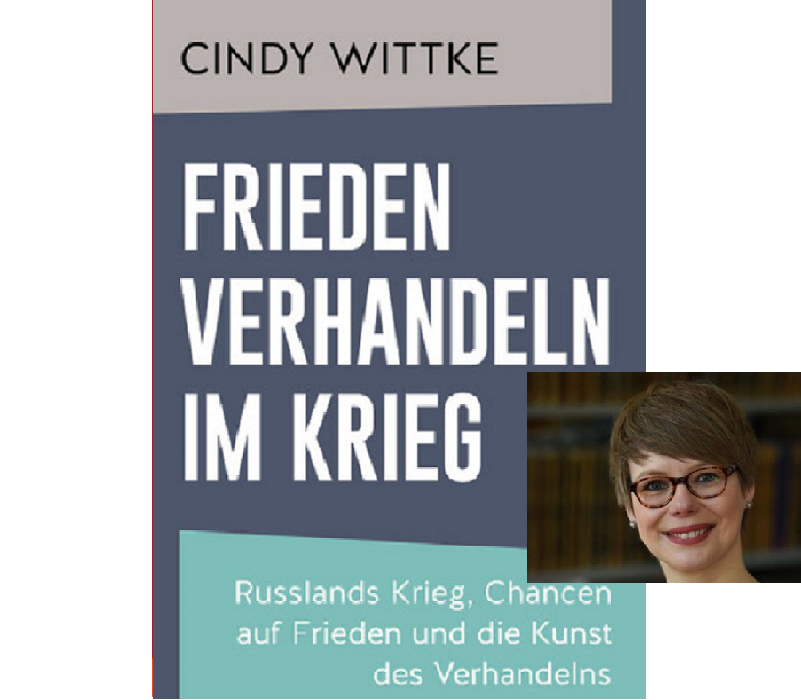
- This event has passed.
BOOK PREMIERE: Frieden verhandeln im Krieg. Russlands Krieg, Chancen auf Frieden und die Kunst des Verhandelns
November 25, 2024 @ 6:00 pm - 9:00 pm UTC+1

Book premiere and discussion
25 November 2024 — 18.00-21.00 CET
Haus der Leibniz-Gemeinschaft
There is a widely accepted notion that wars end with talks and negotiations . Yet why is it so challenging to bring an end to Russia’s war of aggression against Ukraine? What routes might pave the way to negotiations with Russia? What particular obstacles must Ukraine, as the victim of Russian aggression, overcome? And how can a peace treaty be crafted to ensure lasting stability?
Drawing from extensive years of research, Cindy Wittke, the head of the Political Science Research Group at the Leibniz Institute for East and Southeast European Studies (IOS) and her co-author Mandy Ganske-Zapf, the political scientist and journalist on Eastern Europe, explore these complex issues in their new book called “Frieden verhandeln im Krieg – Russlands Krieg, Chancen auf Frieden und die Kunst des Verhandelns” (Quadriga Verlag). They delve into the conditions under which Ukraine and Russia might engage in talks and how these discussions could yield a durable peace agreement. This groundbreaking work stands as the first German-language non-fiction book to that deals with the challenges of peace negotiations in this war in a scientifically sound manner – and makes it clear that the search for answers has become vital for survival — for Ukraine and for the future of Europe.
Peter Haslinger, the Director of the Herder Institute for Historical Research on East Central Europe in Marburg, will introduce the evening. Gesine Dornblüth will moderate the event.
Entrance is free, but due to limited space, registration is required by 20 November 2024 by email, veranstaltungen(at)leibniz-gemeinschaft.de
